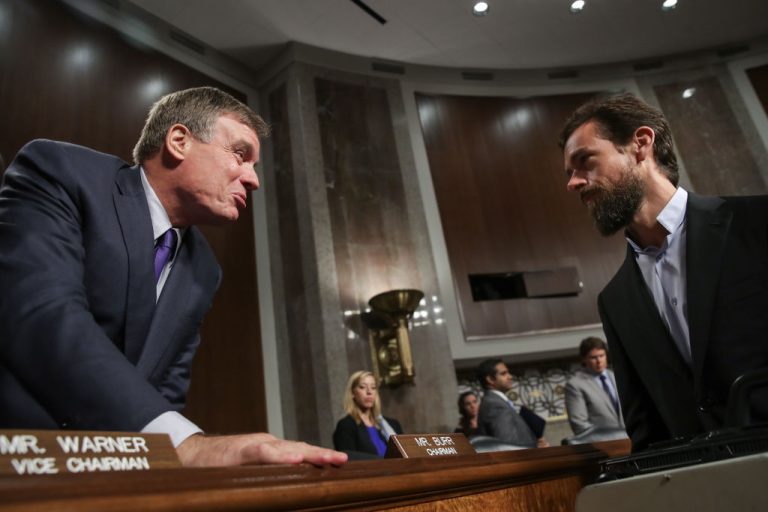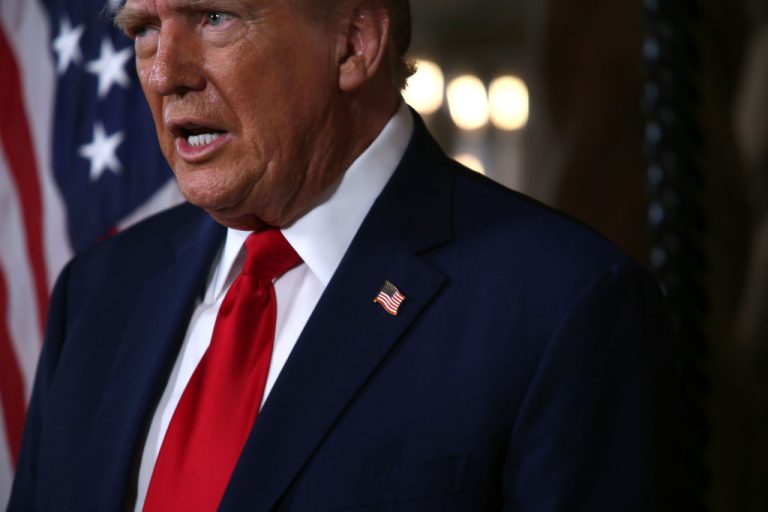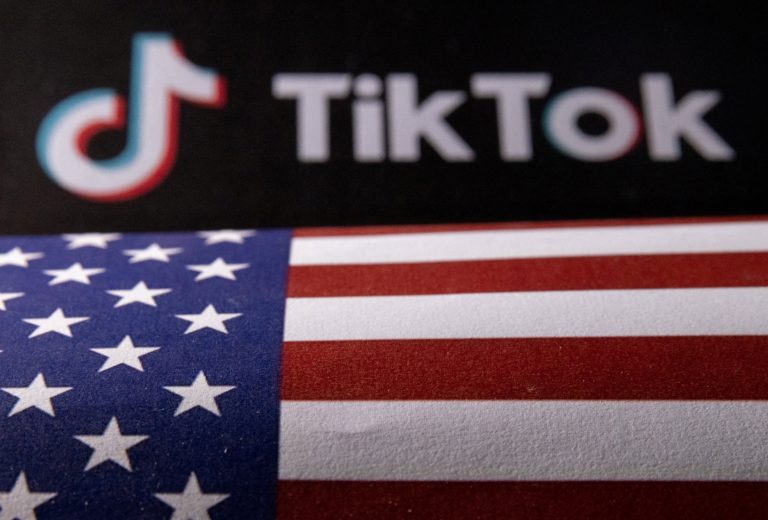A longtime Democratic senator used his clout to propose a wide-reaching legislative crackdown against Twitter unless they toed the Party line on the Russia collusion narrative, a new installment of the “Twitter Files” has revealed.
Journalist Matt Taibbi made the revelations in a Twitter thread on Jan. 3 supported by internal communications produced under the previous leftist management replaced after Elon Musk purchased the platform for $45 billion at the end of 2022.
In 2017, when an internal investigation at Twitter failed to provide evidence of large-scale Russian propaganda supporting then-U.S. President Donald Trump, Sen. Mark Warner, a Democrat representing Virginia, became “furious” and “held an immediate press conference to denounce Twitter’s report as ‘frankly inadequate on every level,'” Taibbi reported, noting that Warner sits on the Senate’s Intelligence Committee.
Musk has since provided select journalists with access to the company’s pre-acquisition files as an ostensible public relations campaign in order to restore trust and faith in Twitter as a social media and communications tool.
MORE ON TWITTER
- Biden Admin ‘Very Angry’ Twitter Wasn’t Doing Enough to Push COVID Narratives
- World Economic Forum 2023 Davos Summit Cancels Elon Musk’s Twitter
- UK Gov Sought Custom Shadowbans From Twitter’s Old Guard in 2020 Pandemic Hysteria
Taibbi explains that the story got started in August of 2017 when Facebook first made headlines for banning hundreds of accounts with a “suspected Russian origin” in the wake of Donald Trump defeating Hilary Clinton during the 2016 presidential election and the subsequent Russiagate hoax that followed.
Success
You are now signed up for our newsletter
Success
Check your email to complete sign up
This put Twitter under pressure to also do its part to crack down on Russian accounts furthering the Kremlin’s propaganda efforts in the West.
But the issue was, as internal communications show, a problem that virtually didn’t exist.
Colin Crowell, at the time Vice President of Global Public Policy & Philanthropy at Twitter and the executive in charge of handling the Facebook-inspired crisis, stated in a Sept. 6, 2017 internal email that he and his team were slated to meet with Senator Mark Warner’s (D-VA) staff in a “non-public, private meeting” on the topic.
In the email, Crowell noted that Twitter was “not the focus of inquiry into Russian election meddling right now – the spotlight is on FB.”
But Twitter was only able to find 22 Russian accounts on the platform that would meet the criteria of an organized campaign. It banned these accounts and 169 additional accounts with “possible links” among an overall investigation of 2,700 usernames.
This lack of results all on its own brought the fury of Warner, who at the time served as Vice Chairman of no less than the Senate Intelligence Committee, succeeding Dianne Feinstein, resulting in comments to the press that created a storm of headlines critical of Twitter.
Warner became Chairman of the Committee in February of 2021.
Taibbi noted with amusement that the day after Sen. Warner put the company on blast in the public sphere, his campaign sent Crowell an automated email pandering for a $5 donation.
An unimpressed Crowell shared the email with colleagues accompanied only by a single sentence: “#irony,” to which General Counsel Sean Edgett responded with “LOL.”
Findings of Twitter’s ‘Russia Task Force’
After meeting with Warner’s team, Crowell sent an update email to former Twitter CEO Jack Dorsey informing executives, “Warner has political incentive to keep this issue at top of the news, maintain pressure on us and rest of industry to keep producing material for them.”
MORE ON THE 2020 ELECTION AND THE US INTELLIGENCE COMMUNITY
- Biden Versus Putin Drama Boils Back to Intelligence Community Election Interference Assessment
- China ‘Sought to Influence’ Presidential Elections: DNI Ratcliffe
- Biden Administration Allegedly Keeping Lid on Report Confirming Swalwell Slept With Chinese Spy
In response to the pressure, only a few days later Twitter created an internal “Russia Task Force” in an attempt to dig up more dirt on Kremlin influence on its platform during the 2016 election.
Yet the most the team could come up with was an “initial list of suspicious advertising content,” accompanied by the caveat that the findings include “a lot of benign content.”
A further update from the Russia team declared there was simply “no evidence of a coordinated approach, all of the accounts found seem to be lone-wolf type activity,” with the advertising spent being a paltry $10,000 or less.
A deeper dive into the remaining subset was conducted by the Task Force, only to find that a meager 15 accounts were considered “high risk” and having “connections with Russia” — two of which were state-media outlet RT (formerly known as Russia Today).
In fact, only two accounts spent more than $10,000 on advertising on the platform, and one of them was RT.
Taibbi noted this was an inconvenient truth for the Democrat-sponsored narrative that the only reason Trump defeated Clinton was because of the assistance of an anti-Western foreign power.
Propelling the Kremlin to the headlines
“Twitter’s search finding ‘only 2’ significant accounts, ‘one of which is Russia Today,’ was based on the same data that later inspired headlines like ‘Russian Influence Reached 126 Million Through Facebook Alone,’” he stated.
And thus, as Taibbi noted, just a few weeks later, stories allegedly originating from Warner’s Senate Intelligence Committee started to leak into the press making claims that Twitter had deleted data that would have proved Russia — and Trump’s — guilt.
One such instance was an Oct. 3, 2017 article published by Bloomberg based on reporting from Politico which was subtitled with the words: “Now Twitter believed to be one of Russia’s most potent weapons.”
Politico’s article itself spoke more definitively, stating that, “Federal investigators now believe Twitter was one of Russia’s most potent weapons in its efforts to promote Donald Trump over Hillary Clinton.”
Specifically, Russia allegedly ran a vast network of operatives who, “By creating and deploying armies of automated bots, fake users, catchy hashtags and bogus ad campaigns,” were able to launch “recurring waves of pro-Trump and anti-Clinton story lines.”
The story, however, was based on completely unconfirmed reports by “current and former government cybersecurity officials” who were “speaking on the condition of anonymity.”
Taibbi then revealed an email from Crowell to staff sounding the alarm based on chatter in the Washington Post that the Federal Elections Committee had suddenly began talking about changes to legislation that would have hurt Twitter’s ability to generate revenue from election campaigning.
“Hi guys.. Just passing along for awareness the writeup here from the WashPost today on potential legislation (or new FEC regulations) that may affect our political advertising,” Crowell stated.
Taibbi added selections of other internal communications pointing out Sen. Warner was leading the charge in Washington to create legislative pressure, parlaying Politico’s articles into a vanguard.
“In Washington weeks after the first briefing, Twitter leaders were told by Senate staff that ‘Sen Warner feels like tech industry was in denial for months.’ Added an Intel staffer: ‘Big interest in Politico article about deleted accounts,’” Taibbi summarized.
And the strategy worked. In October of 2017, Twitter Policy Director Carlos Monje, had revealed in an internal email that the company had quickly read the room and was preparing to stay in line with political flavors.
“Knowing that our ads policy and product changes are an effort to anticipate congressional oversight, I wanted to share some relevant highlights of the legislation Senators Warner, Klobuchar and McCain will be introducing,” Monje stated.
Shortly after, the original list of 2,700 accounts under investigation by the Russia Task Force were leaked to Buzzfeed, who employed researchers from the University of Sheffield to claim that it had found a “new network” of Russian puppets and bot accounts that Twitter was apparently too incompetent to find.
The tactic was effective, causing Director Monje to ask in an internal email that because the “Senate Intel Committee is asking for a write up of what happened with these accounts from our perspective” if it would be “possible to whip something together.”
The situation ultimately led to Twitter changing both its public-facing and internal policy.
Taibbi revealed documents showing the company had changed its “External Offboarding Policy” to target any content or users that “engage or are suspected as engaging in any unlawful activity on our service” with suspension or termination.
An “Internal Guidance” portion further explicitly stated that “any user identified by the U.S. intelligence community” shall be denied the ability to advertise on Twitter should the IC declare them a “state-sponsored entity” alleged to be “conducting cyber operations against the United States “or other elections.”













